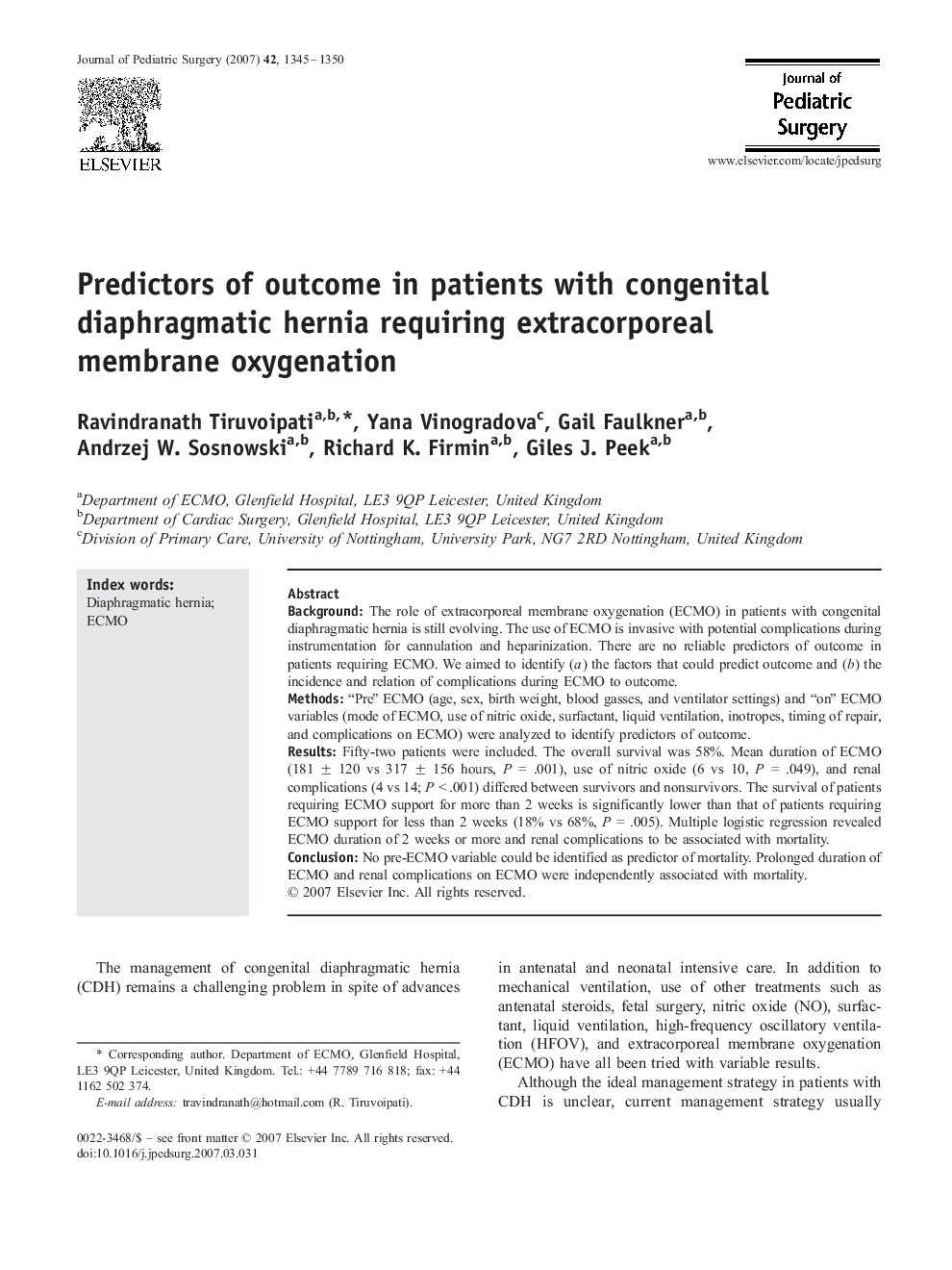| Article ID | Journal | Published Year | Pages | File Type |
|---|---|---|---|---|
| 4160351 | Journal of Pediatric Surgery | 2007 | 6 Pages |
BackgroundThe role of extracorporeal membrane oxygenation (ECMO) in patients with congenital diaphragmatic hernia is still evolving. The use of ECMO is invasive with potential complications during instrumentation for cannulation and heparinization. There are no reliable predictors of outcome in patients requiring ECMO. We aimed to identify (a) the factors that could predict outcome and (b) the incidence and relation of complications during ECMO to outcome.Methods“Pre” ECMO (age, sex, birth weight, blood gasses, and ventilator settings) and “on” ECMO variables (mode of ECMO, use of nitric oxide, surfactant, liquid ventilation, inotropes, timing of repair, and complications on ECMO) were analyzed to identify predictors of outcome.ResultsFifty-two patients were included. The overall survival was 58%. Mean duration of ECMO (181 ± 120 vs 317 ± 156 hours, P = .001), use of nitric oxide (6 vs 10, P = .049), and renal complications (4 vs 14; P < .001) differed between survivors and nonsurvivors. The survival of patients requiring ECMO support for more than 2 weeks is significantly lower than that of patients requiring ECMO support for less than 2 weeks (18% vs 68%, P = .005). Multiple logistic regression revealed ECMO duration of 2 weeks or more and renal complications to be associated with mortality.ConclusionNo pre-ECMO variable could be identified as predictor of mortality. Prolonged duration of ECMO and renal complications on ECMO were independently associated with mortality.
